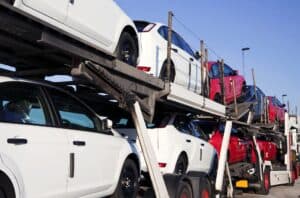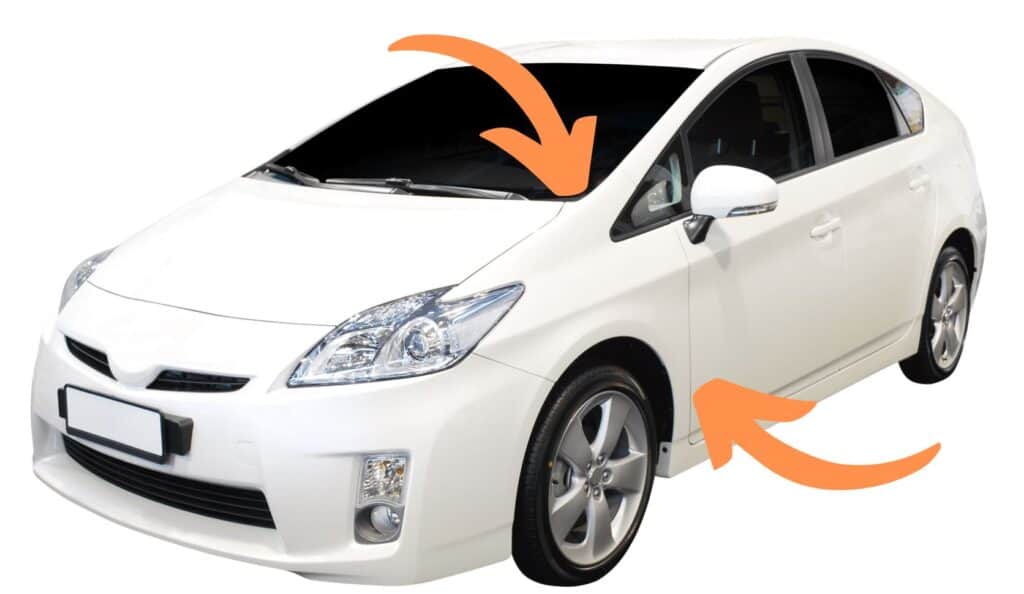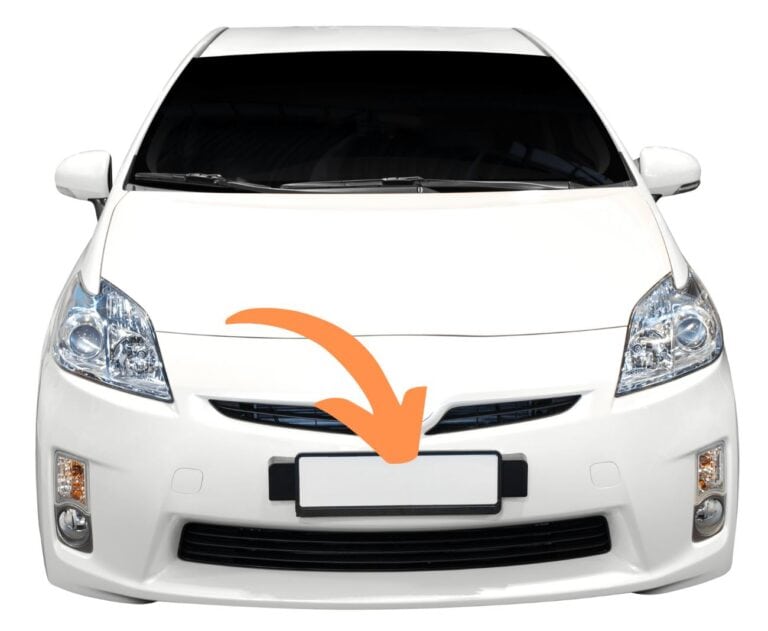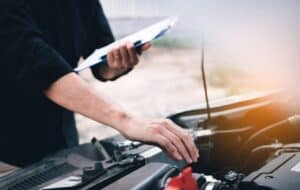
Exporting a Car from Canada to the USA
Exporting a car from Canada to the USA involves a well-defined process to ensure compliance with both Canadian and American regulations. Whether you’re relocating or
CHECK THE VIN OF YOUR CAR RIGHT HERE

Vehicle history check or VIN check, as its commonly known, will reveal important information about a vehicle, including its manufacturer, year of manufacture, and safety features. It can also tell you whether a car has been in any accidents or is subject to any recalls.
Sometimes, a VIN check is also referred to as a chassis number lookup because the number is located on the vehicle’s chassis.
You can get a Canadian vehicle history check from several sources, including the manufacturer, this website, or your insurance company. It’s a good idea to get one before you buy a used car, to make sure you know what you’re getting into. VIN lookup Canada can help you get a free vehicle history report and learn all about the particular vehicle you are interested in.
When you’re buying used cars, it’s important to do your research. A VIN check can help you learn about a vehicle’s history and safety features, making it an indispensable tool for navigating the used car market.
Here at Vehicle Check Canada we give you the option of checking your car’s history via the VIN number. We offer the best license plate lookup Canada has to offer.
The vehicle identification number (VIN) is a unique code that identifies your car. It’s made up of 17 characters, and you can find it on the dashboard, driver’s side door pillar of the chassis, or insurance card.

You can find the VIN number in several places on a car. The most common locations are on the dashboard, the driver’s side door pillar, and the insurance card. The VIN number is also stamped into the metal chassis frame of the car.
If you can’t find the VIN number on the car, you can check the registration or vehicle title. The VIN number is usually listed in the upper-right corner of the vehicle registration.
The best way to get a VIN check is to use an online service like Vehicle Check Canada where you can get a free vin check or search chassis number in Canada. It will give you detailed vehicle history reports on the car, including its make, model, and any accident history or damage that have been reported.
Whether you’re looking for license plate lookup BC, Ontario license plate lookup, or license plate lookup for any province in Canada, we have you covered.

You can find the license plate number or number plate is located on the front and rear of the car and is normally fitted to the bumper.
You can copy down the number on the plate and enter it directly into our License Plate search tool.
A license plate check will provide you the same data as a VIN check will but the location of the number on the vehicle is normally more convenient for you to locate, so many people prefer this method.
CHECK THE VIN OF YOUR SELECTED CAR RIGHT HERE
A Vehicle History Report will provide you all the information you need to know about a vehicle’s past. A full vehicle history report is one of the most important vehicle records you can get. It will tell you about the vehicle’s title and usage history, the ownership history of that particular vehicle, details of any insurance claim made on the car, and everything else you need to know about the vehicle’s history.
So when you finally find your dream car, you can be confident that it’s devoid of any major problems and proves to be the perfect choice for you. Each Vehicle Check Canada VIN chassis check report checks for:

CHECK THE VIN OF YOUR SELECTED CAR RIGHT HERE
There are a variety of reasons for why it’s important to get a vehicle VIN check. Yes, it is best done before you purchase a used vehicle; however, even if you only manage to do the vehicle check prior to purchasing a preowned vehicle, it’s still better than nothing at all.
There is a lot of crucial information that you can get from running the VIN and checking the vehicle.
A VIN check Canada report can tell you how far the vehicle has traveled over the course of its life. It can tell you how many miles the car has on it and how many miles were driven per year on average.
This is a good indicator of how old the vehicle is and how much it was used. Of course, you can have 2 cars, each 10 years old, but if one only has half the miles than the other one, you can guess which vehicle is likely to be in the better condition.
Another important piece of information from a simple vehicle check, also related to mileage, has to do with odometer rollbacks. Sometimes odometers are rolled back, which makes it appear as though the vehicle has traveled fewer miles than it actually had.
It’s a really sneaky trick, because if you purchase a vehicle that has had an odometer rollback, you could be in for a nasty surprise.
Another reason why it’s important to get a vehicle history report before purchasing a used vehicle is because you want to know that all of the components in the vehicle are safe and road worthy.
The unfortunate reality is that many car manufacturers and retailers sell vehicles that may have defective components. It y would not be the first time that a set of brakes, a steering wheel, airbags, and other components have been recalled due to defects — this is all about your safety.
You don’t want to end up purchasing a vehicle that had a recall issued on the airbags, only to find out that the airbags were never actually replaced with functioning ones.
A vehicle check will inform you if any other components of your vehicle have ever been subject to a recall. You’ll also determine if the recall was executed on your vehicle and if the defective parts were replaced. Vehicle component recalls are done for the safety of all those on the road, especially you.
Something that is very unfortunate, but happens more often than you might think, is that used vehicles still have liens on them. Liens are when you use something like a car as collateral to get a loan, or a mortgage.
The previous owner of the vehicle may have taken out a lien on the car to get a loan. But, what happens when the previous owner stops paying off that loan and has an outstanding debt? The creditors are going to come after the collateral, which in this case might be the vehicle you purchased.
You should always get a vehicle check because it would be unfortunate to wake up one day, be ready for work, and to see the repo man hauling your car away due to somebody else’s unpaid debt.
Doing a VIN check Canada report prior to the purchase can help ensure that your vehicles aren’t caught up in some financial web of deceit.

Although this may not be quite as important as some of the other information you get from a vehicle check, is knowing what the vehicle was used for.
After all, there is going to be a difference in the condition of a car if it was strictly for personal use or if it was used as a police car, taxi, or rental vehicle.
It might not be the No. 1 indicator of the condition which the car is in, but it’s still something which many like to be informed of. If you find that your vehicle was used as a taxi for 5 years, it might be a good idea to get it thoroughly inspected.
Another reason why performing a vehicle check before making a purchase is important is because it can tell you the service history of your vehicle.
You will find out how often the vehicle was serviced, if it was serviced at the proper intervals, and if all necessary maintenance was kept up. You don’t want to buy a used vehicle only to find out that the oil was barely changed and the tires never rotated.
A detailed overview of the service history of your vehicle can go a long way in telling you what kind of condition it is in. If service was regularly performed, you can rest assured that the vehicle in question is most likely in fairly good condition.
However, if the vehicle’s service was frequently neglected, you might want to think twice about purchasing that specific vehicle.
The next important reason why you should always perform a VIN check Canada report before making a purchase is to find out if the vehicle was ever severely damaged. A vehicle check can inform you of previous flood and hail damage, collision damage, and more.
You want to know if your vehicle has ever been in a collision, what parts of the vehicle were damaged, and whether any components had to be replaced, or are still damaged. Knowing that your vehicle does not have any existing structural damage, such as to the frame, is crucial to your own safety.
Not only is it crucial for safety, but for saving money. After all, making a vehicle with existing structural damage roadworthy is going to cost a lot of money and work put into it, if it’s even possible to make it roadworthy again. Even if the vehicle you have purchased was damaged in some way, at least you can tell whether or not it was properly repaired.
Related to the above point, whether or not the airbags were ever deployed is also an important thing to know — which a vehicle check can inform you of.
This lets you know that the vehicle was in a collision severe enough to cause the airbags to deploy. You might think that you are getting a great deal on the vehicle, only to find out that it was previously wrecked in a crash.
If the car was wrecked in a crash, it was either junked or salvaged. Salvaging cars is fine if the specific vehicle is salvageable.
If your previously owned car was salvaged, it’s something you want to know about, and you also want to know which parts were salvaged and which were replaced. This will give you a good idea of what kind of condition the car is in, the structural integrity, and what future repairs and service intervals might look like for you.
You will want to know if your vehicle has any branding associated with it. When a vehicle has been branded, it means that it has a permanent designation assigned to it.
These are assigned to components such as the registration, permit documents, and the title. This can tell you if the vehicle was written off due to damages, collisions, fires, floods, and other such things.
A car which has been in a major collision will be branded as such, or for instance, if there was a total loss suffered, this is something else that you can tell from the branding and registration information. It’s just a really good overview of the important history of the vehicle.
It wouldn’t be the first time that somebody has tried to sell stolen goods. This is something that does happen in the used car market, more frequently than most of us would like to admit, but it does happen.
People steal cars and then try to sell them, claiming that they are legal and legit. A vehicle check will tell you if the vehicle has been reported as stolen.
If you buy a stolen vehicle, if you ever get pulled over, you could land in hot water. Driving around in what essentially amounts to a stolen vehicle isn’t going to look good in a court of law.
Just like with anything else you might purchase, whether brand new or secondhand, something you always want is a decent warranty. If something breaks or any component in your vehicle fails, through no fault of your own, you want to know that you are covered.
However, when you buy a used vehicle without doing a check, you might purchase one that has no warranty left on it. If you are buying a fairly old vehicle, this can be a problem.
Chances are that something will break down sooner rather than later, and if you aren’t covered by a warranty, you’re going to be responsible for the full cost. Many used cars, especially older ones, won’t have a warranty left on them, but it’s still a valuable thing to know either way.
Another reason why it’s a good idea to do a VIN check Canada report is to find out whether or not there were any previous insurance claims made on your vehicle. Of course, if there were previous claims, chances are almost 100% that your insurance premiums for that same vehicle will be more substantial.
Moreover, with a vehicle check, you can quickly find out if your vehicle was ever ruled to be a total loss. This means that the total money which the insurance company would have paid out would have been less than the repair or salvage costs.
This has made it more cost effective for the original owner to replace the damaged vehicle rather than to repair it; a car that is a total loss or write-off is not likely to be in good condition.

Exporting a car from Canada to the USA involves a well-defined process to ensure compliance with both Canadian and American regulations. Whether you’re relocating or

Quebec, with its rich culture, stunning landscapes, and vibrant cities, is a fantastic place to own and drive a vehicle. Whether you’re a resident of

When it comes to owning and operating a car, many factors come into play, including fuel efficiency, maintenance costs, and resale value. One often-overlooked aspect

Are you wondering how much your car is really worth? Don’t rely solely on guesswork or rough estimates. Unlock the hidden value of your car

Quebec, with its rich history, diverse culture, and stunning landscapes, is a province known for its vibrant lifestyle. For residents and newcomers alike, owning a

In the heart of Canada lies the picturesque province of Ontario, home to bustling cities, serene landscapes, and a thriving automotive culture. If you’re considering
CHECK THE VIN OF YOUR SELECTED CAR RIGHT HERE
Vehicle Check Canada helps you make an informed decision by providing you solutions for a used car purchase. We help you to decode your VIN on a single click and tell you the market value of your used car through our car valuation calculator. You can also get the information on car insurance, latest news and detailed blog posts on various topics related to used cars which will help you in making an informed choice.
This is an excellent resource for any person looking to purchase a used vehicle. Vehicle Check Canada will help you determine whether or not the used car in question is worth purchasing, as well as if the vehicle is safe or not. It’s an all in one resource for anybody who is purchasing or has recently purchased a used automobile.
You can find the VIN on your vehicle. In cars and trucks, VIN is present on the driver’s side dashboard or on the driver’s side door (on the door jamb). Motorcycles also have a VIN but it may be located in a variety of places on the frame.
If you are having trouble locating the VIN, the best way to do is to is to look at the dashboard through the windshield from the outside, on the driver’s side of the vehicle.
here is a variety of valuable information which can be gleamed from a simple VIN decode, such as performed here at Vehicle Check Canada.
Many people wonder why getting a car history check is important. The primary reason is to ensure that you have all the information possible when purchasing a used vehicle. Knowing about the comprehensive service history, previous accidents, usage history, and more will help you determine whether a car is safe to buy and whether it is worth purchasing.
Yes, this is one of the pieces of information that you will be provided with when you get a free VIN report. So not only will you see who owns the car now, but you will get detailed information about all ownership history.
Most people would agree that getting a free VIN report is worth it. Of course, being free makes a difference; you will receive all the necessary information to make an informed purchase without paying a cent. There is no risk to reward ratio to consider here. The cost is nothing, and therefore there is no risk. Getting a free VIN report is crucial to ensuring that the vehicle you purchase is safe and roadworthy.
As long as you continue to meet the payment terms, it should not affect your credit score. In fact, if you meet and exceed the payment terms, it may actually boost your credit score.
The first digit in a VIN represents the country of origin. The second digit identifies the manufacturer. The third digit may provide you with information about the vehicle type. Then, digits 4 through 8 are used to describe the vehicle. These contain model type, body type, transmission, and engine information. The 9th digit in a VIN is the check digit, a so-called security code. The 10th digit is the model year, the 11th is the manufacturer’s plant code, and digits 12 through 17 are the production number of the vehicle in question.
VIN stands for “Vehicle Identification Number”. It is a 17-character identification number allotted to all types of vehicles built after 1980.
Each and every vehicle has a different, unique, and specific VIN number. This is what allows Vehicle Check Canada to provide users with a detailed history in relation to any and every vehicle.
A VIN decode is a system such as ours, Vehicle Check Canada, which can decode a vehicle’s VIN number to provide you with useful information about it. For example, the first digit in the VIN tells you the country of origin, the second digit relates to who the maker is, the third digit refers to the type of vehicle, and so on and so forth.
A vehicle history report tells you everything you need to know about a car. It provides in-depth information and insights into the searched vehicle including:
Many people are concerned that doing a VIN check will in some way put their safety and security at risk. Well, providing your VIN to do a VIN check is perfectly safe. This is not like your bank account information. The VIN is always in plain sight, like a vehicle’s license plate. So providing your VIN number is not going to put you at risk. In addition, people cannot steal your identity with a VIN number, like a social security number or other information.
Providing your VIN does not put you at risk, so it is recommended to provide it when selling a vehicle. As a buyer, you want to know everything there is to know about a used vehicle. Providing your VIN gives you the best chance of your car being sold for the highest price or being sold at all. This will allow potential buyers to do all of the necessary research on your vehicle, so they can feel confident in their purchase. VIN checks don’t just help buyers make good purchases; they also help sellers make sales to begin with.
Doing a car history check should in no way affect your credit score. However, if you apply for a vehicle loan, this will affect your credit score. That said, a single credit inquiry when looking to secure a car loan should also not have a significant effect on your credit score. Your credit score may decrease by anywhere from 2 to 7 points per check, which is really not very much. Whether you are in Alberta, Ontario, or anywhere else in Canada, this is the case.
If you cannot find the VIN on your vehicle by looking at the dashboard from the exterior of your windshield, just use your licence plate number instead. Otherwise, contact the manufacturer or retailer and provide them with the vehicle’s make and model. They should then tell you where to find the VIN. You may also check the vehicle title and registration documents, as the VIN should be contained within those as well. If your vehicle is already insured, the VIN should also be found on the insurance card or papers.